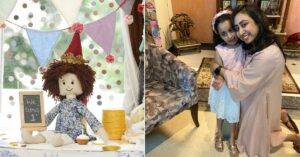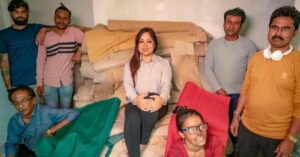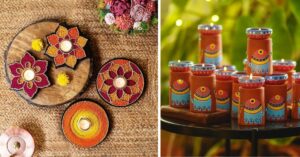Kashmir Designer Turns Waste Paper from Colleges, Offices to Speakers, Furniture & More
After graduation, designer Burhan ud din Khateeb launched Studio Kalib to give eco-friendly and modern spins to Kashmir’s traditional craft, making unique handiwork like bluetooth speakers, chicken coops, furniture, bags, and more.
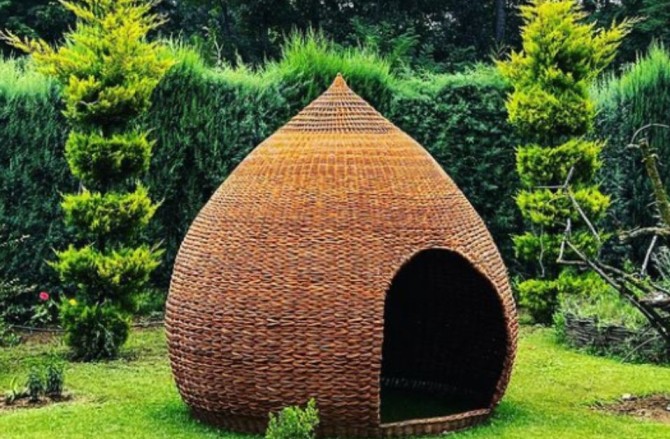
When Burhan ud din Khateeb graduated from the National Institute of Design-Ahmedabad, unlike his fellow graduates, he decided not to take up a job in a big corporation. Pained by the declining craftsmanship in his hometown Kashmir, the 30-year-old decided to move back home and create something that helps the artists and craftsmen of his homeland.
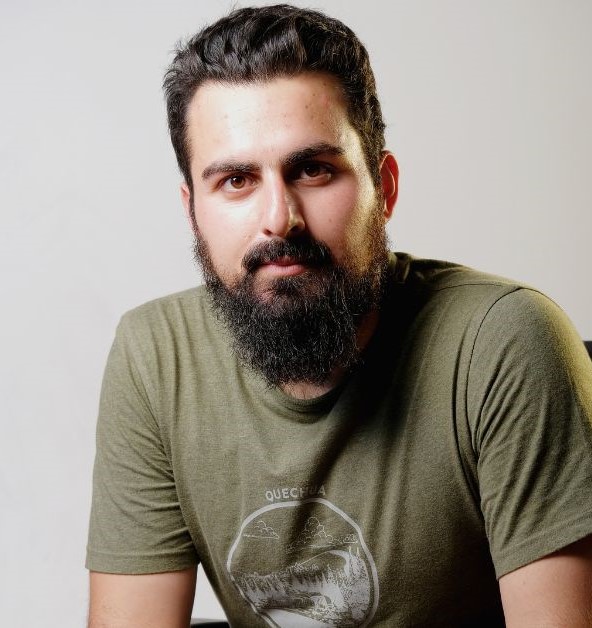
“I could have worked in some MNC or some mainstream company, but then I thought to myself that if I’m not going to go there and do something myself, how can I expect anyone else to come in to help us?” he recalls in conversation with The Better India.
After returning to Kashmir, Burhan started Studio Kilab, short for Kashmir Innovation Lab in Srinagar, a design studio aimed at addressing the issue of the blurring crafts industry in the valley by using sustainable and biodegradable materials.
Bags, home decor, furniture, chicken coops, or home utility — you name it. Burhan has found a way to amalgamate traditional Kashmiri craftsmanship with contemporary design while giving it a sustainable spin. They use materials like wood, paper mache, willow wicker to make the products greener and reduce their carbon footprint.
Where modern design meets sustainability
While Burhan was still at university, he started questioning if there were ways to make manufacturing of designs more sustainable and eco-friendly, leaving the least amount of negative impact on the environment.
This is when he came across Singgih Kartono, a designer from Indonesia.
“He studied in one of the best universities, but he went to his village to see how he can utilise local materials and craftsmanship to design products. This inspired me a lot, because people from Kashmir have lots of underutilised skills.” he says. “Moreover, the region has so much to offer in terms of materials. Why are people not using them? This thought really bugged me.”
He then visited Kartono to understand how design can be used to create livelihoods and make sustainable designs more practical.
“I started to look into what the government is doing for the crafts industry, or if there are other companies doing similar projects here. I found out that most of these organisations come, do a few projects, and leave. They don’t have any long-term plans,” he explains.
After doing some projects for Ishfaq Mir, who then had a traditional crafts family business, they both co-founded Studio Kilab. Burhan says he has travelled the world and understands the value sustainable designs can bring to the table.
“The most interesting product we made is the chicken coops, as we were able to permaculture techniques while amalgamating design sensibility to it, which was pretty unique,” he says.
Bruhan also made innovative bluetooth speakers using paper mache.
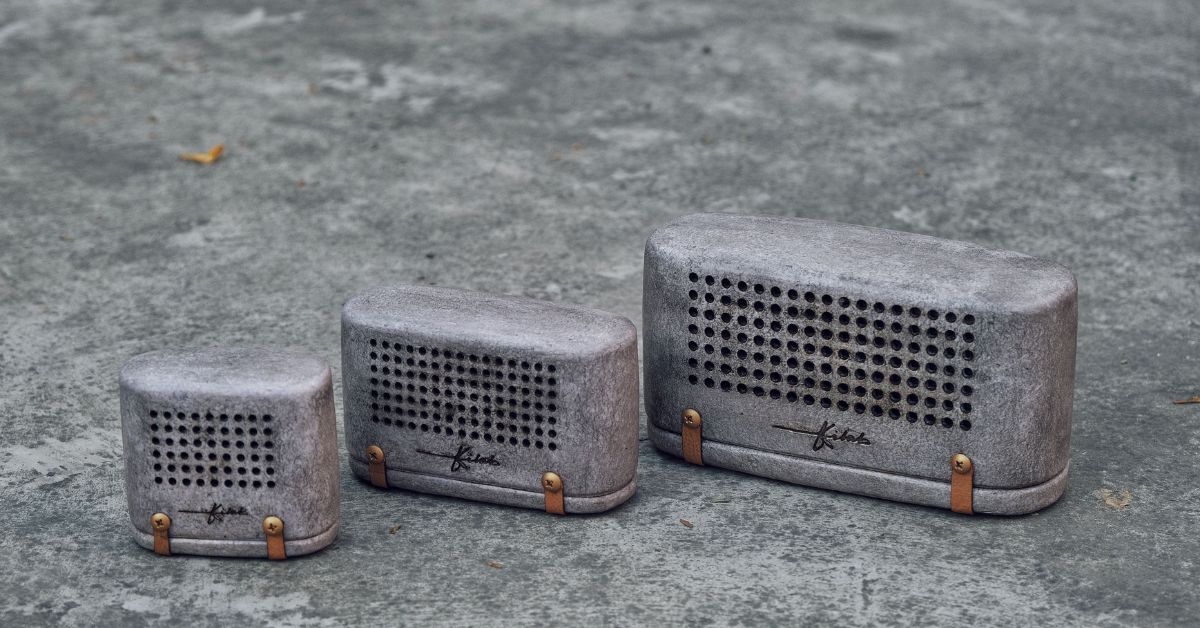
The idea for bluetooth speakers, he recalls, was to push craft to newer technology and electronics. The material is eco-friendly, durable and the acoustics, resonance of a paper mache enclosure are pretty much like wood’s. The pulp is highly flexible and can be moulded into any shape, which is quite challenging with wood, he says.
The designs predominantly use paper mache, willow wicker, pine and walnut wood he adds. The paper mache comes from local printing presses, offices, and universities where there is a lot of waste paper.
“The willow wicker comes from a place called Ganderbal, which is famous for cultivating wicker. For wood we work with the Forest Department, who have a very organised way of procuring wood from trees that are very old,” he informs.
Even though Studio Kilab is in its growing stage, they have been able to provide work and livelihood to more than 100 craftsmen from Srinagar and nearby areas, says Burhan.
“We engage nearly eight to ten craftsmen at a time in one project. There is a lot of training that goes into the process because we are not making traditional products, but giving them a contemporary spin that requires a lot of research and experimentation,” he says.
A journey full of challenges
After coming out of the pandemic induced lockdown, today Burhan says that the company stands in a comfortable position, but grass was not always green for them.
Working in Kashmir comes with its own set of challenges, he says.
“We have been in a political mess for quite a long time, it has damaged the work culture here. The organised way of working, consistency in working is missing. If you can get, say, ten things done in someplace, then in Kashmir that decreases to two or maybe three in the same amount of time,” he explains.
Weather, too, says Burhan, contributes to slowing down the pace of work in a day. However, these are not just the only hurdles that he faces.
“Funding in Kashmir is a problem, not just for us but for any new entrepreneur. For any creative enterprise you need to put in money first. It is mostly home-run businesses that make it, for a new enterprise it is hard,” he says.
In the pipeline
Burhan says that they have many more plans for the company.
“We are now trying to rebuild a team that was disrupted due to COVID. We have already launched our new collection and have got a good response to that. While our main goal is always to give livelihood to more and more Kashmiri craftsmen and build more sustainable products, we also want to enter the global market. Expansion is surely on the horizon, we are exhibiting at different places, we are trying to collaborate with different brands as well,” Burhan informs.
Studio Kilab’s new collection is also about to come out.
Burhan adds that owing to decades of political turmoil, Kashmir has always been closed off and isolated from the rest of the world. “As a result, craftsmen and artisans here never got the chance to evolve. They have been making the same things over and over again without any innovation,” he laments. If you found our stories insightful, informative, or even just enjoyable, we invite you to consider making a voluntary payment to support the work we do at The Better India. Your contribution helps us continue producing quality content that educates, inspires, and drives positive change. Choose one of the payment options below for your contribution- By paying for the stories you value, you directly contribute to sustaining our efforts focused on making a difference in the world. Together, let’s ensure that impactful stories continue to be told and shared, enriching lives and communities alike. Thank you for your support. Here are some frequently asked questions you might find helpful to know why you are contributing?

“We did not get a chance to evolve and stand at par with others in the industry. We needed a platform that has a long term vision, that belonged to the place to bring the craft closer to contemporary and sustainable ideas and hence Studio Kilab is a platform that wants to do so,” Burhan notes.
Edited by Divya Sethu
This story made me
-
97
-
121
-
89
-
167




